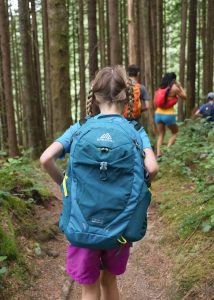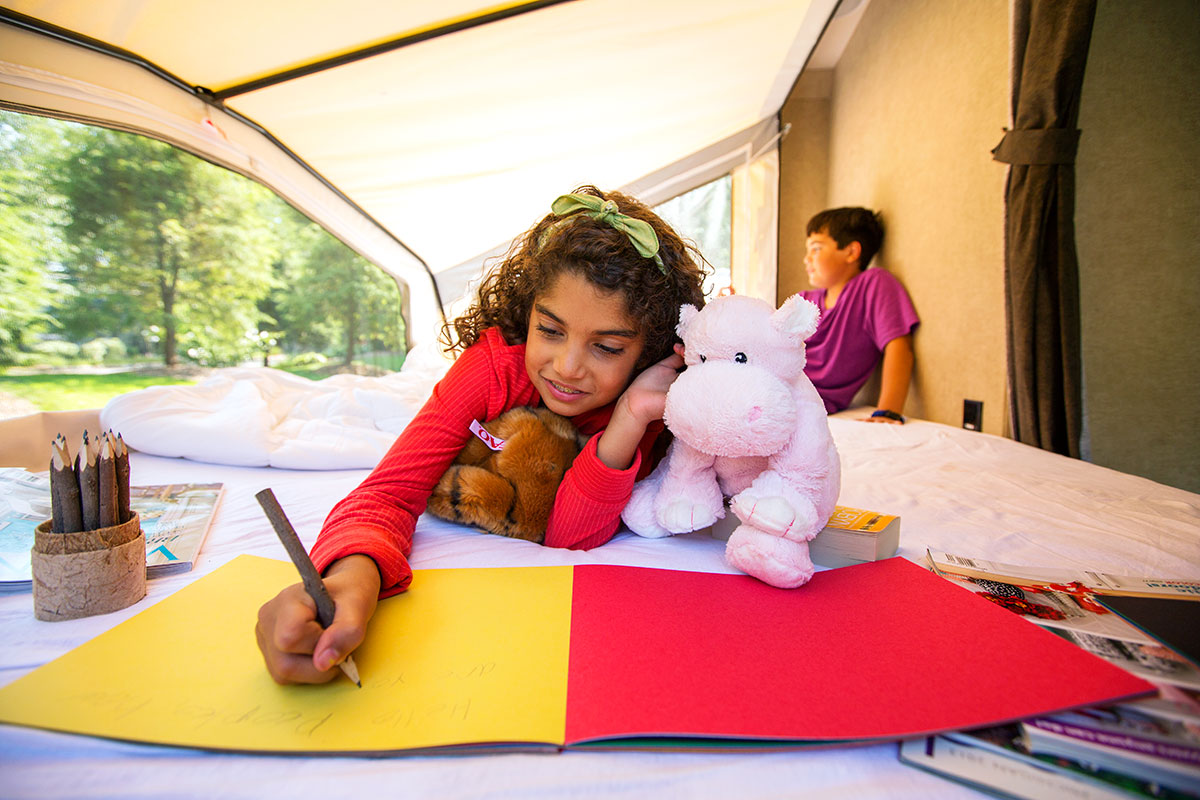Homeschooling in an RV
There are many families who have made the choice to live in an RV and therefore, a more nomadic lifestyle. Whether these families are comprised of three people or seven, there’s an RV that can fit everyone comfortably. The kids still need to go to school though. So, how can parents manage the education of their children from the ultimate one-room classroom, the RV? As much of the country has experienced this spring, schooling children at home and outside of the traditional setting requires flexibility, patience, finesse, and preparation.
Curriculum
There are a lot of options when it comes to curriculum. Some are more formal approaches, while others are more Montessori. You need to do your research as to what kind of curriculum fits your family. This will depend on the ages of your children as well. Younger kids may need a different approach than older kids because of developmental differences. When choosing a curriculum, pay attention to the program cost, what resources you’ll need to purchase (such as books) in addition, if there’s any support offered, and if it’s accepted by your state.
The outdoor classroom
Mother Nature is one of our greatest teachers. So much of what we create is based off of what Mother Nature has already expertly created. Take the lessons outside, even to the picnic table. This change of venue is refreshing for young minds. Then, incorporate the outdoors into your lessons plans. In the spring, go for a hike and ask kids to find signs of spring. In the fall, visit an orchard and cider mill to learn how apples are grown and made into cider. The possibilities are virtually endless. Kids are inquisitive, too, so expect to teach many “pop-up” lessons when they have questions, such as when a thunderstorm rolls in (what causes thunder?) or the day gets too hot (why is the sun hot right now and not hot later in the year when it snows?). As always, be respectful of nature and wildlife by taking only photos and leaving only footprints – and new insights.
 Life skills
Life skills
Many schools today are primarily focused on academics, yet teaching life skills and hands-on hobbies is also important. Baking, cooking, organizing, sewing, woodworking, as some examples, can be wonderful ways to teach kids how to read, follow directions, and create. They use their hands as well as their minds with these activities. A little kitchen science may be in order, too! Another life skill is community outreach and service, donating time or resources to help others. Community outreach can be helping the less fortunate, or it can be helping a neighbor with a chore. Altruism is an important life lesson; one your kids can participate in no matter where they are.
Living history
One of the best advantages of homeschooling in an RV is that you can choose to physically visit places of historical significance. If you’re talking about Washington, D.C., then you can travel to Washington, D.C. You can make stops along a road trip to historic markers and locations anywhere you’re traveling, incorporating the visit into your lessons.
Get active
Physical education is a class in public and private schools for a reason: growing boys and girls need to move! Physical activity is essential for proper mental and physical development, especially for boys who seem to be more hardwired to be active. Going for hikes, a bike ride, or playing outdoor games get young bodies moving and help get everyone out of the “classroom.” Games help impart Plus, everyone will feel stronger and healthier as a result.

